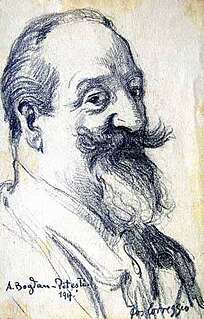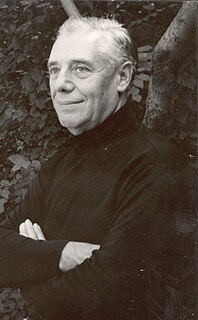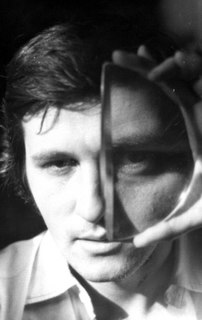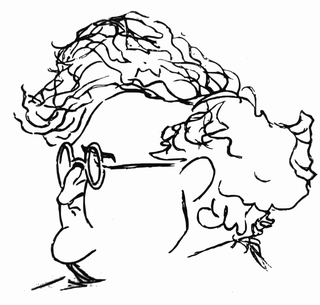 W
WZamfir Constantin Arbore was a Bukovinian-born Romanian political activist originally active in the Russian Empire, also known for his work as an amateur historian, geographer and ethnographer. Arbore debuted in left-wing politics from early in life, gained an intimate knowledge of the Russian revolutionary milieu, and participated in both nihilist and Narodnik conspiracies. Self-exiled to Switzerland, he became a member of the International Workingmen's Association. Arbore was mostly active as an international anarchist and a disciple of Mikhail Bakunin, but eventually parted with the latter to create his independent group, the Revolutionary Community. He was subsequently close to the anarchist geographer Élisée Reclus, who became his new mentor.
 W
WȘtefan Aurel Baciu was a Romanian and Brazilian poet, novelist, publicist and academic who lived his later life in Hawaii. A precocious, award-winning, young author in interwar Romania, he was involved in editing several literary magazines. Attracted into left-wing democratic politics and the Social Democratic Party (PSDR), he camouflaged his views while working for the fascist press under dictatorial regimes, but returned in 1944 to manage the PSDR's Libertatea newspaper. Witnessing first-hand the gradual communist takeover, Baciu managed to have himself assigned to a diplomatic posting in Switzerland, and ultimately defected in 1948. A resident and then citizen of Brazil, and a traveler throughout Latin America, he wrote works in Portuguese, Spanish, English and German, as well as in his native Romanian.
 W
WAnatol E. Baconsky, also known as A. E. Bakonsky, Baconschi or Baconski, was a Romanian modernist poet, essayist, translator, novelist, publisher, literary and art critic. Praised for his late approach to poetry and prose, which transgresses the genres and introduces an aestheticized, original and progressively dark perspective to Romanian literature, he was also criticized for his early commitment to Socialist Realism and communism. Much of his work belongs to the field of travel literature, recording his experiences in the Eastern Bloc, the Far East and Soviet Union, and finally Central Europe. He was also a critically acclaimed translator of foreign works, including the Mahābhārata and poems by Jorge Semprún, Artur Lundkvist and others, the author of world literature anthologies, and the editor of monographs on Romanian and foreign painters.
 W
WNicolae Bagdasar was a Romanian philosopher. Born to a peasant family north of Bârlad, he fought in World War I before attending the University of Bucharest and going on to earn a doctorate in Germany. He entered university teaching at Bucharest in 1928, but did not become a full professor until 1942, when he began teaching the history of philosophy and epistemology at Iași. Rising to Romanian Academy member the following year, he lost this distinction in 1948, under the nascent communist regime, and was removed from teaching in 1949. He spent the remainder of his career in a lower profile, undertaking research in various fields. A well-read scholar, Bagdasar authored the first history of Romanian philosophy, among several noted texts. Both in the interwar period and during World War II, he was involved in running publishing houses, with the latter stint incurring disfavor from the communist authorities.
 W
WConstantin Dumitru Beldie was a Romanian journalist, publicist, and civil servant, famous for his libertine lifestyle and his unapologetic, sarcastic, memoirs of life in the early 20th century. After modest but happy beginnings in life, Beldie played a small but essential part in the promotion of literary modernism, building bridges between the mainstream and the avant-garde. He became a pioneer of cultural journalism at Noua Revistă Română, before moving on to Ideea Europeană and ultimately Cuvântul, befriending philosopher-journalist Nae Ionescu. Like Ionescu, he promoted a vitalistic perspective on society and culture, veering into antiintellectualism after 1918.
 W
WAlexandru Bogdan-Pitești was a Romanian Symbolist poet, essayist, and art and literary critic, who was also known as a journalist and left-wing political agitator. A wealthy landowner, he invested his fortune in patronage and art collecting, becoming one of the main local promoters of modern art, and a sponsor of the Romanian Symbolist movement. Together with other Post-Impressionist and Symbolist cultural figures, Bogdan-Pitești established Societatea Ileana, which was one of the first Romanian associations dedicated to promoting the avant-garde and independent art. He was also noted for his friendship with the writers Joris-Karl Huysmans, Alexandru Macedonski, Tudor Arghezi and Mateiu Caragiale, as well as for sponsoring, among others, the painters Ștefan Luchian, Constantin Artachino and Nicolae Vermont. In addition to his literary and political activities, Alexandru Bogdan-Pitești was himself a painter and graphic artist.
 W
WIordan Chimet was a Romanian poet, children's writer and essayist, whose work was inspired by Surrealism and Onirism. He is also known as a memoirist, theater, art and film critic, book publisher and translator. Chimet, who was an opponent of totalitarianism in general and of the Communist regime in particular, was persecuted by the latter as a dissident, and lived much of his life in obscurity. His experience as an employee of the cooperative society Centrocoop also made him one of the first professional copywriters in his country.
 W
WȘerban Cioculescu was a Romanian literary critic, literary historian and columnist, who held teaching positions in Romanian literature at the University of Iași and the University of Bucharest, as well as membership of the Romanian Academy and chairmanship of its Library. Often described as one of the most representative Romanian critics of the interwar period, he took part in the cultural debates of the age, and, as a left-wing sympathizer who supported secularism, was involved in extended polemics with the traditionalist, far right and nationalist press venues. From early on in his career, Cioculescu was also noted for his selective approach to literary modernism and the avant-garde, preferring to place his cultural references with Neoclassicism.
 W
WLudovic Dauș was a Romanian novelist, playwright, poet and translator, also known for his contributions as a politician and theatrical manager. He was born into a cosmopolitan family, with a Czech father and a boyaress mother, but his formative years were marked by life in the small boroughs of Western Moldavia. Trained as a lawyer and employed for a while as a publisher, Dauș joined the body of experts at the Ministry of Royal Domains, climbing through the bureaucratic ranks. In parallel, he advanced his literary career: a noted dramatist, he was an unremarked poet and historical novelist prior to World War I. His translation work covered several languages, and includes Romanian versions of The Kreutzer Sonata, Madame Bovary, and Eugénie Grandet.
 W
WIoan Constantin Filitti was a Romanian historian, diplomat and conservative theorist, best remembered for his contribution to social history, legal history, genealogy and heraldry. A member of the Conservative Party and an assistant of its senior leader Titu Maiorescu, he had aristocratic (boyar) origins and an elitist perspective. Among his diverse contributions, several focus on 19th-century modernization under the Regulamentul Organic regime, during which Romania was ruled upon by the Russian Empire. As a historian, Filitti is noted for his perfectionism, and for constantly revising his own works.
 W
WBonifaciu Florescu was a Romanian polygraph, the illegitimate son of writer-revolutionary Nicolae Bălcescu. Born secretly outside his parents' native Wallachia, at Pest, he was taken by his aristocratic mother in France, growing up as an erudite Francophone and Francophile. Florescu graduated from the Lycée Louis-le-Grand and the University of Rennes, returning home at age 25 to become a successful lecturer, polemicist, and historian of culture. Influenced by his father's politics, he was for a while a prominent figure on the far-left of Romanian liberalism and nationalism, which pitted him against the conservative society Junimea, and against his own conservative cousin, Prime Minister Ion Emanuel Florescu. The conflict led to his losing a professorship at Iași University and being sidelined when applying for chairs at the University of Bucharest. His critique of Junimist literature, structured around a classical defense of prosody, inspired a libel by Mihai Eminescu—famously depicting Florescu as a "homunculus".
 W
WNicolae Iorga was a Romanian historian, politician, literary critic, memoirist, poet and playwright. Co-founder of the Democratic Nationalist Party (PND), he served as a member of Parliament, President of the Deputies' Assembly and Senate, cabinet minister and briefly (1931–32) as Prime Minister. A child prodigy, polymath and polyglot, Iorga produced an unusually large body of scholarly works, establishing his international reputation as a medievalist, Byzantinist, Latinist, Slavist, art historian and philosopher of history. Holding teaching positions at the University of Bucharest, the University of Paris and several other academic institutions, Iorga was founder of the International Congress of Byzantine Studies and the Institute of South-East European Studies (ISSEE). His activity also included the transformation of Vălenii de Munte town into a cultural and academic center.
 W
WGeorge Ivașcu was a Romanian journalist, literary critic, and communist militant. From beginnings as a University of Iași philologist and librarian, he was drawn into left-wing antifascist politics, while earning accolades as a newspaper editor and foreign-affairs journalist. Openly confronting the Iron Guard and fascism in general, he was persecuted and went into hiding during the first two years of World War II. He reemerged as a pseudonymous correspondent, then editorial secretary, of the magazine Vremea, slowly turning it away from fascism. In parallel, he also contributed to the clandestine left-wing press, preparing for an Allied victory.
 W
WMihail Kogălniceanu was a Moldavian, later Romanian liberal statesman, lawyer, historian and publicist; he became Prime Minister of Romania on October 11, 1863, after the 1859 union of the Danubian Principalities under Domnitor Alexandru Ioan Cuza, and later served as Foreign Minister under Carol I. He was several times Interior Minister under Cuza and Carol. A polymath, Kogălniceanu was one of the most influential Romanian intellectuals of his generation. Siding with the moderate liberal current for most of his lifetime, he began his political career as a collaborator of Prince Mihail Sturdza, while serving as head of the Iași Theater and issuing several publications together with the poet Vasile Alecsandri and the activist Ion Ghica. After editing the highly influential magazine Dacia Literară and serving as a professor at Academia Mihăileană, Kogălniceanu came into conflict with the authorities over his Romantic nationalist inaugural speech of 1843. He was the ideologue of the abortive 1848 Moldavian revolution, authoring its main document, Dorințele partidei naționale din Moldova.
 W
WBarbu Lăzăreanu was a Romanian literary historian, bibliographer, and left-wing activist. Of Romanian Jewish background, he became noted for both his social criticism and his lyrical pieces while still in high school, subsequently developing as a satirist and printing his own humorous magazine, Țivil-Cazon. Lăzăreanu's youthful sympathies veered toward the anarchist underground, prompting him to associate with Panait Mușoiu.
 W
WHaralamb George Lecca was a Romanian poet, playwright and translator, grandson of artist Constantin Lecca and brother of genealogist Octav-George Lecca, as well as nephew and rival of writer Ion Luca Caragiale. He had an unsettled youth, studying medicine and law for a while, and also reaching a Sub-Officer's rank in the terrestrial army. He debuted in literature under the guidance of Bogdan Petriceicu Hasdeu, who also employed Lecca's services as a medium. His early work was in poetry, often outstandingly macabre, evidencing his familiarity with 19th-century French literature and hinting at a vague affiliation with Symbolism. Briefly a collaborator of Junimea society, then of its dissident wings, Lecca never joined the fledgling Symbolist movement, and spent his later life in relative isolation from all literary circles.
 W
WGabriel Liiceanu is a Romanian philosopher.
 W
WIoan Mire Melik, or Melic, was a Wallachian, later Romanian mathematician, educator and political figure, one of the early members of Junimea literary society. Known for his work in private education, and for his tenure at the University of Iași, he was the author of several early introductions to science—dealing with arithmetic and geometry, but also with topography and surveying. He was perceived as a bland figure at Junimea meetings, and had little to do with its literary agenda, but took care of administrative chores and, for a while, of its publishing venture.
 W
WUdriște Năsturel, first name also Uriil, Uril, Ioriste, or Oreste, last name also Năsturelovici, was a Wallachian scholar, poet, and statesman, the brother-in-law of Prince Matei Basarab through his sister Elena Năsturel. Together, the three staged a cultural revival centered on Bucharest and Târgoviște. Năsturel had risen through the ranks of Wallachian bureaucracy and had served Radu Mihnea's government in Moldavia, being kept as Logothete by Matei Basarab. In office, he had an international correspondence and went on diplomatic travels through Central Europe, while also overseeing the printing presses. He was the titular boyar of Herăști, known in his day as Fierești and Fierăști, where he built a palace that stands as a late example of Renaissance architecture, and earned him a regional fame.
 W
WMircea Nedelciu was a Romanian short-story writer, novelist, essayist and literary critic, one of the leading exponents of the Optzecişti generation in Romanian letters. The author of experimental prose, mixing elements of conventional narratives with autofiction, textuality, intertextuality and, in some cases, fantasy, he placed his work at the meeting point between Postmodernism and a minimalist form of Neorealism. This approach is illustrated by his volumes of stories and his novels Zmeura de cîmpie, Tratament fabulatoriu, and by Femeia în roşu, a collaborative fiction piece written together with Adriana Babeţi and Mircea Mihăieş.
 W
WOvidiu Coriolan Pecican is a Romanian historian, essayist, novelist, short-story writer, literary critic, poet, playwright, and journalist of partly Serbian origin. He is especially known for his political writings on disputed issues such as regional autonomy for Transylvania, and for his co-authorship of a controversial history textbook for 11th and 12th grade high-school students.
 W
WPerpessicius was a Romanian literary historian and critic, poet, essayist and fiction writer. One of the prominent literary chroniclers of the Romanian interwar, he stood apart in his generation for having thrown his support behind the modernist and avant-garde currents of Romanian literature. As a theorist, Perpessicius merged the tenets of Symbolism with the pragmatic conservative principles of the 19th century Junimea society, but was much-criticized over perceptions that, in the name of aesthetic relativism, he tolerated literary failure. Also known as an anthologist, biographer, museologist, folklorist and book publisher, he was, together with George Călinescu, one of his generation's best-known researchers to have focused on the work of Junimist author and since-acknowledged national poet Mihai Eminescu. Much of Perpessicius' career was dedicated to collecting, structuring and interpreting Eminescu's texts, resulting in an authoritative edition of Eminescu's writings, the 17-volume Opere ("Works").
 W
WVasile V. Pogor was a Moldavian, later Romanian poet, philosopher, translator and liberal conservative politician, one of the founders of Junimea literary society. Raised in the aristocratic circle of Iași, and educated in the French Empire, he had a career in law. He was a civil servant during the United Principalities regime, held seats and commissions in the Assembly of Deputies, and, after the proclamation of the Kingdom of Romania, was Mayor of Iași City. Although he had a major role in creating the Conservative Party, by fusing together the various "White" political clubs and Masonic Lodges, Pogor was more loyal to the Junimist inner faction, and stood by it when it split with the other Conservatives.
 W
WLazăr Șăineanu was a Romanian-born philologist, linguist, folklorist and cultural historian. A specialist in Oriental and Romance studies, as well as a Germanist, he was primarily known for his contribution to Yiddish and Romanian philology, his work in evolutionary linguistics, and his activity as a literary and philological comparatist. Șăineanu also had innovative contributions to the investigation and anthologizing of Romanian folklore, placed in relation to Balkan and East Central European traditions, as well as to the historical evolution of Romanian in a larger Balkan context, and was a celebrated early contributor to Romanian lexicography. His main initiatives in these fields are a large corpus of collected fairy tales and the 1896 Dicționarul universal al limbii române, which have endured among the most popular Romanian scientific works.
 W
WHenric Ștefan Streitman was a Romanian journalist, translator and political figure, who traversed the political spectrum from socialism to the far-right. He was a physicist, social commentator and publisher, known for both his polemical stances and his erudition. Often struggling financially, Streitman set up several short-lived periodicals, and involved himself in the cultural and political debates, from 1889 to the time of his death. In his early years, he was a promoter of natural selection ideas, and a translator of Marxist and naturalist literature.
 W
WCaton Theodorian, or Teodorian, was a Romanian playwright, poet, short story writer and novelist. A maternal nephew of the politician Eugeniu Carada, he was, through his Oltenian father, a scion of the boyar nobility. His noble origins informed his chief works in both naturalistic fiction and drama, which mainly deal with social decline and boyar obsessions with heredity. Although showcased by the National Theater Bucharest, Theodorian's plays were dismissed by critics as vulgar or wordy, and were sometimes rejected by the public. His most treasured contribution was a 1915 comedy, Bujoreștii, which synthesizes his recurrent themes. A moderate in ideological terms, the writer never openly affiliated with either the Romanian Symbolists or their Sămănătorul rivals, but frequented and was published by both. During the final twenty years of his life, he was attached to the Sburătorul circle.
 W
WV. A. Urechia was a Moldavian, later Romanian historian, Romantic author of historical fiction and plays, academic and politician. The author of Romanian history syntheses, a noted bibliographer, heraldist, ethnographer and folklorist, he founded and managed a private school, later holding teaching positions at the University of Iaşi and University of Bucharest. Urechia was also one of the founding members of the Romanian Academy and, as frequent traveler to Spain and fluent speaker of Spanish, a corresponding member of the Royal Spanish Academy. He was the father of satirist Alceu Urechia.
 W
WPaul Zarifopol was a Romanian literary and social critic, essayist, and literary historian. The scion of an aristocratic family, formally trained in both philology and the sociology of literature, he emerged in the 1910s as a rebel, highly distinctive, voice among the Romanian press and book reviewers. He was a confidant and publisher of the Romanian writer Ion Luca Caragiale, building his theories on Caragiale's already trenchant appraisals of Romanian society and culture. Zarifopol defended art for art's sake even against the Marxism of his father-in-law, Constantin Dobrogeanu-Gherea, and the Poporanism of his friend, Garabet Ibrăileanu. He was also a noted censurer of neoclassical trends, of philistinism, and of inauthentic customs, advocating renewal, but not revolution. A skeptic reviewer of modernist literature, he reemerged during the interwar period as its dedicated promoter, but his preference for literary entertainment over substance and many of his literary bets were shortly dismissed by other experts of the day.
 W
WAbraham Leib Zissu was a Romanian writer, political essayist, industrialist, and spokesman of the Jewish Romanian community. Of lowly social origin and a recipient of Hasidic education, he became a noted cultural activist, polemicist, and newspaper founder, remembered primarily for his Mântuirea daily. By the end of World War I, he emerged as a theorist of Religious Zionism, preferring communitarianism and self-segregation to the assimilationist option, while also promoting literary modernism in his activity as novelist, dramatist, and cultural sponsor. He was the inspiration behind the Jewish Party, which competed with the mainstream Union of Romanian Jews for the Jewish vote. Zissu and Union leader Wilhelm Filderman had a lifelong disputation over religious and practical politics.